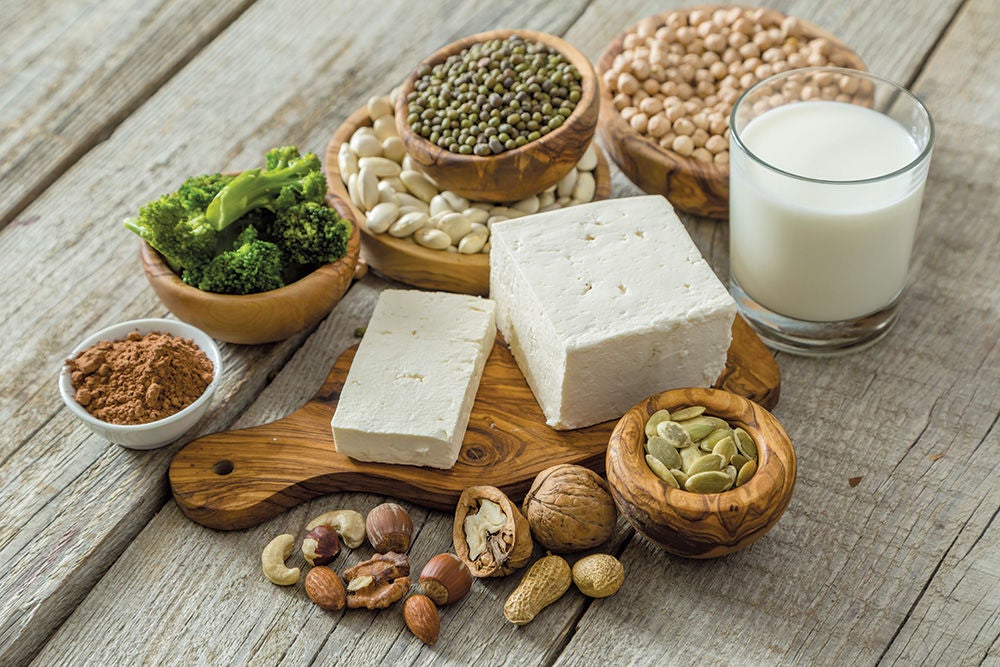Ask The RD: Can I be vegetarian and still gain muscle?

Answer: Yes, but you might have to work a little harder in the kitchen than your omnivorous friends to do so. Muscle tissue is formed when your body uses building blocks such as amino acids to repair the micro-damage done during a workout — building the muscles up to be stronger and more resilient than before. Your body doesn’t care whether these amino acids come from animal- or plant-based sources, as long as it has what it needs to repair and rebuild.
Now, here is where the work comes in.
The Complete Story
A protein can be either complete or incomplete. A complete protein contains all nine essential amino acids — those that the body does not make — which can be found in foods such as red meat, poultry, fish, yogurt, soy and some pseudograins, such as quinoa and buckwheat. Incomplete proteins — from foods such as legumes, vegetables, nuts and some grains, such as rice — lack one or more EAAs. You can “create” a complete protein by eating complementary foods, such as rice and beans, which together contain the full spectrum of EAAs. These complementary proteins do not necessarily have to be consumed together, but since your body cannot store amino acids to use later in the day, they should be eaten within the same 24-hour period.
You will also have to be cognizant of your macros when going the vegetarian route, since many plant-based proteins are high in carbohydrates, which could affect weight-loss and physique goals. Aim for sources highest in protein whenever possible (see “Protein Heavy Hitters” below), and if you’re a flexitarian — who eats plant- and animal-based meals — have your greener fare earlier in the day to make the most of those high-energy carbs.
Related: How to Choose A Plant-Based Protein Powder
Plant Power
Macros aside, there is substantial research that supports making a shift toward plant-based foods for improved long-term health: A large JAMA Internal Medicine study found that people who obtained higher amounts of protein from plant sources like beans and lentils experienced a lower risk of early death, particularly from heart disease. A four-week study also found that participants who followed a flexitarian diet had a 20-point drop in cholesterol, since plant-based proteins have less saturated fat, more fiber and more phytochemicals than animal proteins, discouraging fat storage and filling you up so your meals are more satisfying. And according to a 2016 study published in Nutrients, vegetarian athletes were found to have greater cardiorespiratory fitness than the meat-eating group in the same study.
So go on — belly up to the salad bar and stake your claim on some plant-based gains.
Related: Muscle-Building Supplements for Vegans
Protein Heavy Hitters
Here are the top 10 high-pro vegetarian/vegan foods:
- Protein powder (1 scoop), 18-24 grams of protein
- Greek yogurt, plain, nonfat (6 ounces), 17 grams of protein
- Tempeh (½ cup), 15.4 grams of protein
- Cottage cheese (½ cup), 14 grams of protein
- Egg whites (½ cup), 13 grams of protein
- Tofu, firm (4 ounces), 11 grams of protein
- Lentils, cooked (½ cup), 8.9 grams of protein
- Milk, plain nonfat (1 cup), 8.3 grams of protein
- Peanut butter (2 tablespoons), 8 grams of protein
- Pinto beans, cooked (½ cup), 7.7 grams of protein